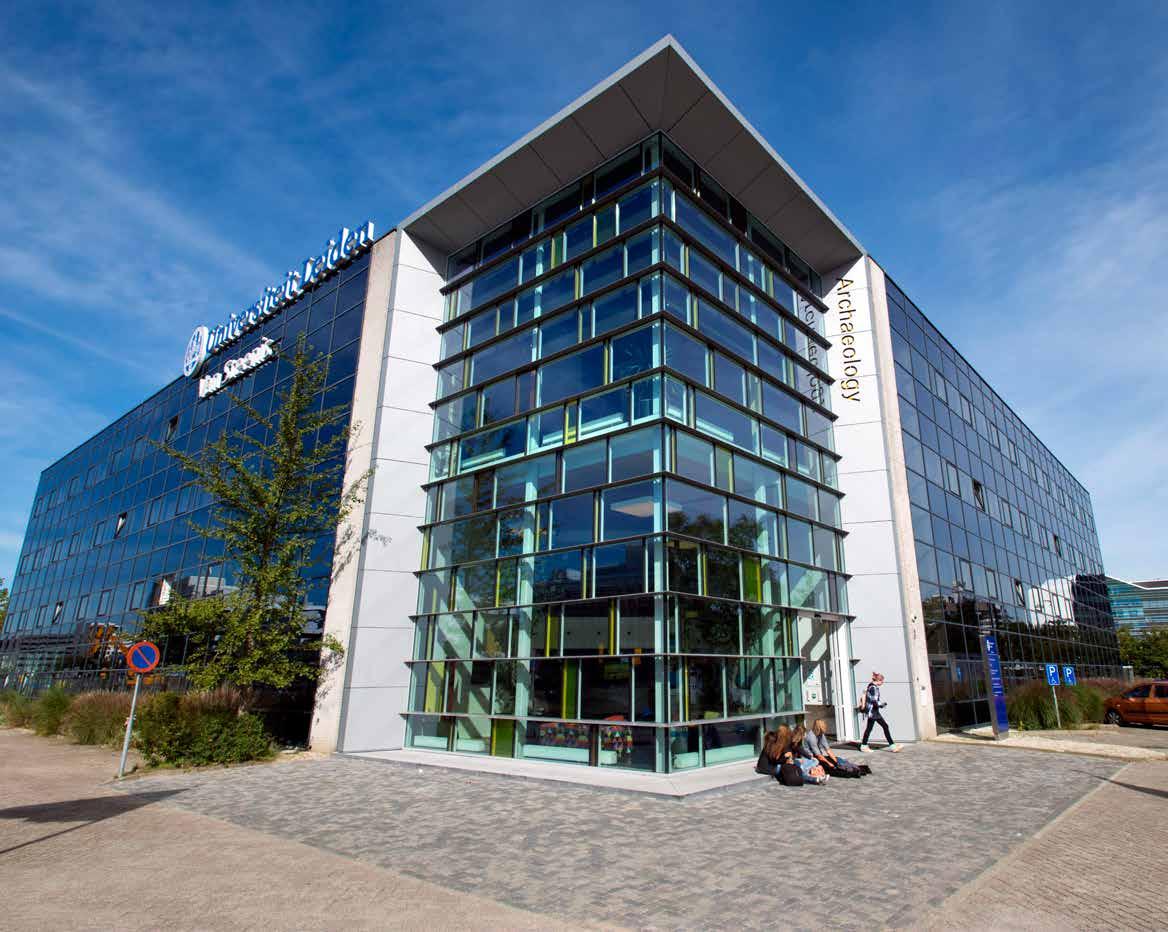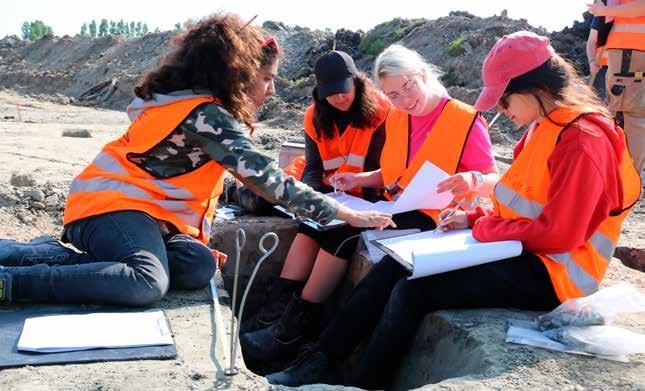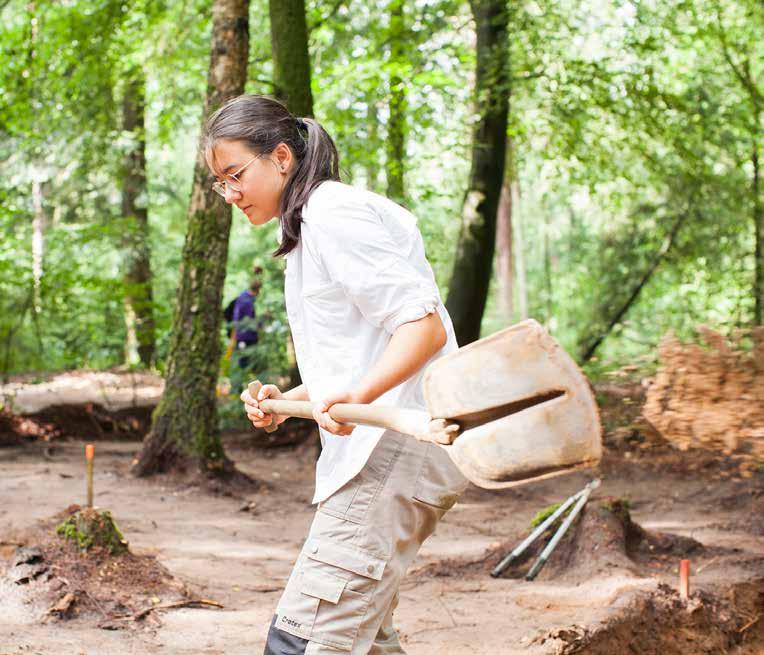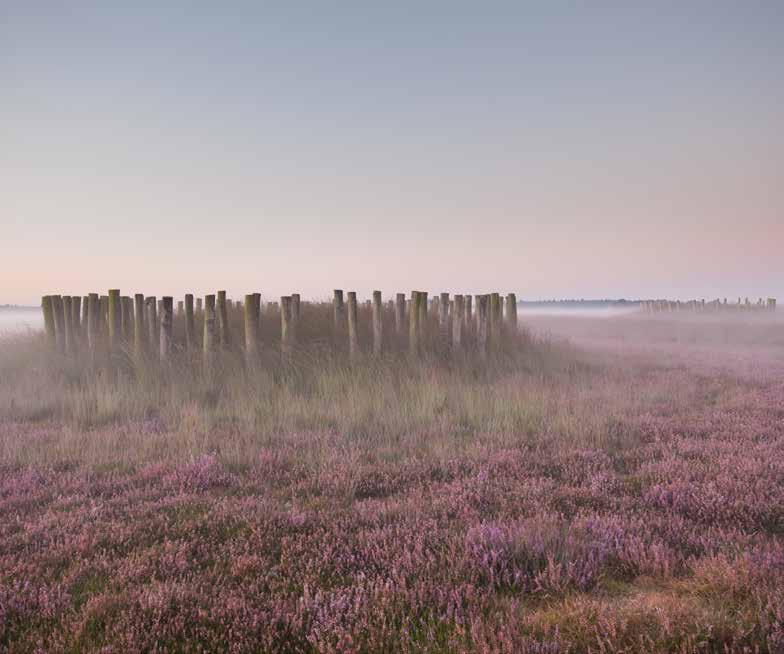
4 minute read
Get to know our faculties
from About us 2021
ARCHAEOLOGY
Where past and present meet
At the Faculty of Archaeology, we research the development of human societies worldwide, from the earliest beginnings to the modern era. We also study the heritage that can teach us about the long history of humankind as well as about society today.

Archaeologists have access to effective methods that both explain the past and make it relevant to the present. Archaeology is an interdisciplinary field that uses approaches and theories from the social sciences, humanities and natural sciences, thus giving rise to new insights. Alongside research, the main focus of the Faculty is to train students as archaeologists and heritage experts. Research and teaching go hand-in-hand: every lecturer is an experienced researcher and every researcher is an experienced lecturer.
RESEARCH With a staff of almost 120, the Faculty of Archaeology is the largest academic centre of archaeology in continental Europe. The Faculty’s academic staff conduct research in three departments: • Archaeological Heritage • Archaeological Sciences • World Archaeology.
Our research covers large parts of the world and nearly all eras. We study the complexity of the human past from interdisciplinary perspectives, and ask research questions that can help resolve today’s societal challenges. Our research gives rise to exciting partnerships within and well beyond the Faculty itself, all in an inspiring researchdriven setting.
Graduate School
The Graduate School of Archaeology offers extensive PhD programmes on the excavation, analysis and interpretation of material remains from the human past.
TEACHING
Bachelor’s programme in Archaeology
Our bachelor’s programme provides a broad introduction to archaeology, allowing students to delve into the role of heritage in society. This English-taught bachelor’s programme prepares our students for an international career. More-ambitious students can follow our Crossing Borders in World Archaeology honours programme.
Master’s programmes in Archaeology
Our specialised master’s programmes (MA, MSc or Research Master’s) in Archaeology provide a solid basis for an international career in archaeology, heritage management, heritage policy or the museum world.
Fieldwork
The Faculty of Archaeology runs fieldwork projects all over the world. Students can participate in excavations and projects not only in the Netherlands but also in France, Cyprus, Oman or the Caribbean, for instance.
FACTS AND FIGURES 2020
557 students: 362 bachelor’s students and 195 master’s students
118 staff (86 academic and 32 non-academic)
Faculty/Institute:
• Archaeology
21 doctorates
The Faculty is a world leader and is in the top 10 of the QS World University Rankings (discipline).
BACHELOR’S PROGRAMMES
• BA in Archaeology
MASTER’S PROGRAMMES
• MA/MSc in Archaeology • MSc in Archaeology (research)
Roman marching camp
In 2020, Leiden archaeologists, students and local volunteers discovered a Roman camp in the woods near Ermelo. The encampment is four kilometres from a Roman fortification found previously, which confirms the theory that the Romans also carried out reconnoitring expeditions in the Netherlands, well beyond the borders of their empire. The legionaries presumably built these fortifications to protect their temporary encampments from possible attacks from outside. The camp covers an area of almost six hectares. The only remains visible to the naked eye are an earth rampart and a ditch in the woods. The archaeologists found various bronze artefacts and, using a metal detector, even unearthed a ‘fibula’, a kind of brooch used by Roman legionaries to secure their cloaks.
Teaching with video games
In his classes, which were mainly online in 2020, lecturer Aris Politopoulus combines archaeology with video games. He was one of the three nominees for the 2020 LUS Teaching Prize. ‘I might, for example, examine a game closely to see how much of the “archaeological information” is accurate, and what the players learn from it about, for example, the development of cities or global empires. For one specific assignment I got my students to watch a livestream where I play video games and comment on them. They then had to reflect on this. I also got them to write an archaeological review of a game of their choice.’




Larger reference collection
The reference collection of the Laboratory for Archaeozoological Studies had already won international fame. Thanks to a large donation from the Institute of Biology it has only increased in size. Archaeozoologist Laura Llorente Rodriguez was very pleased with the donation, ‘We can now study most of the fauna in Europe in an archaeological context. It makes our collection much more diverse. We’ve been able to add the bones of all sorts of mammals, birds, fish, ducks and even crocodiles. The extra money will make it easier for us to study the evolution of animals in the past.’
Citizen science
In 2020, Leiden archaeologists appealed to volunteers to help search for archaeological remains on satellite images of Utrechtse Heuvelrug, a national park close to Utrecht. The coronavirus pandemic helped make the project a resounding success: in a single month, all 300,971 maps had been examined. In the Junior Heritage Quest project children aged between 8 and 12 could search online for archaeological remains in the Veluwe area, and thus make a valuable contribution to scientific research.










